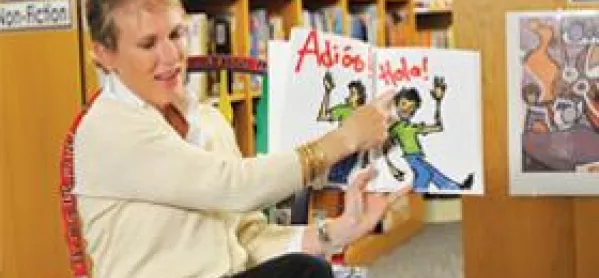Pupils say `oui’ to extra languages

Scotland’s ambitious policy to have pupils learning two foreign languages by the end of primary school has got off to a “very positive” start, but concerns remain over how to make it a lasting success, TESS can reveal.
Education Scotland’s evaluation of nine trial projects has found enthusiasm for languages among pupils of all ages, including those with additional support needs (ASN).
However, the report also stresses that work remains to be done before the “1+2” languages policy can be considered successful in the long term, with concerns lingering about how to make sure projects do not fizzle out owing to a lack of trained staff.
Children in the pilot schools - six primaries and three secondaries - tended to be “very positive” about language learning, confident about speaking in another language and keen to learn more of them, according to the report.
It also found that the pupils enjoyed the process when it was “engaging and relevant to their lives”. They saw the point of language learning if it was “clearly linked to the real world and relevant to future employment or leisure opportunities”.
A new qualification entitled Modern Languages for Life and Work had further enticed pupils by offering a vocational emphasis on languages with no exam at the end.
Successful projects went beyond mundane topics such as weather and dates to explore the culture of countries and integrate languages into school life, according to the report.
In Shetland, which historically has strong links with Norway and retains them today through the oil and gas industry, pupils at Anderson High School learned Norwegian. “I chose [it] because I heard that oil companies look for Norwegian speakers,” one pupil said.
St Modan’s High School in Stirling focused on pupils with ASN. French was already a compulsory subject in S4 and students were reluctant to take on Spanish, but a visit to a Glasgow restaurant, where they ordered food in the language, helped to win them over. Meanwhile, Hillside Primary School in Dundee introduced French into daily activities such as registration and cleaning up.
Teachers who had not undergone previous language training were anxious at the start of the project but grew in confidence, the report says. Ongoing training is essential, it continues, as the success of the policy “hinges on staff confidence”.
But it adds that local authorities realise “it is not reasonable to expect teachers who are just beginning to train in delivering one additional language to deliver a second at the same time”.
Some senior managers reported that they were concerned about maintaining sufficient numbers of trained staff and whether there would be enough time to devote to languages. Madras College in St Andrews, for example, had to drop plans to offer Mandarin in part because of staffing issues, replacing it with Spanish.
The report advises that the trial schools, having done well in getting children to speak other languages, must turn to reading and writing. Assessment should be built in, it says, with more opportunities to apply language to real-life situations.
“There is a growing awareness that language learning in primary school is about more than vocabulary,” the report states. “One of the pilot schools referred to progression as being more than `just learning words’. This is a key message.”
Education Scotland will next month publish a P1-7 “progressive framework” to help schools build momentum in this area. Together with SCILT, Scotland’s national centre for languages, the organisation will run five-day courses in Glasgow in July and October in an attempt to increase the number of teachers with expertise in languages.
Education Scotland’s strategic director Graeme Logan said: “It is clear from the evaluative work we have carried out on these pilot projects that, given the appropriate methodologies and the right level of challenge, all children and young people can enjoy and benefit from learning languages.”
Keep reading for just £1 per month
You've reached your limit of free articles this month. Subscribe for £1 per month for three months and get:
- Unlimited access to all Tes magazine content
- Exclusive subscriber-only stories
- Award-winning email newsletters



